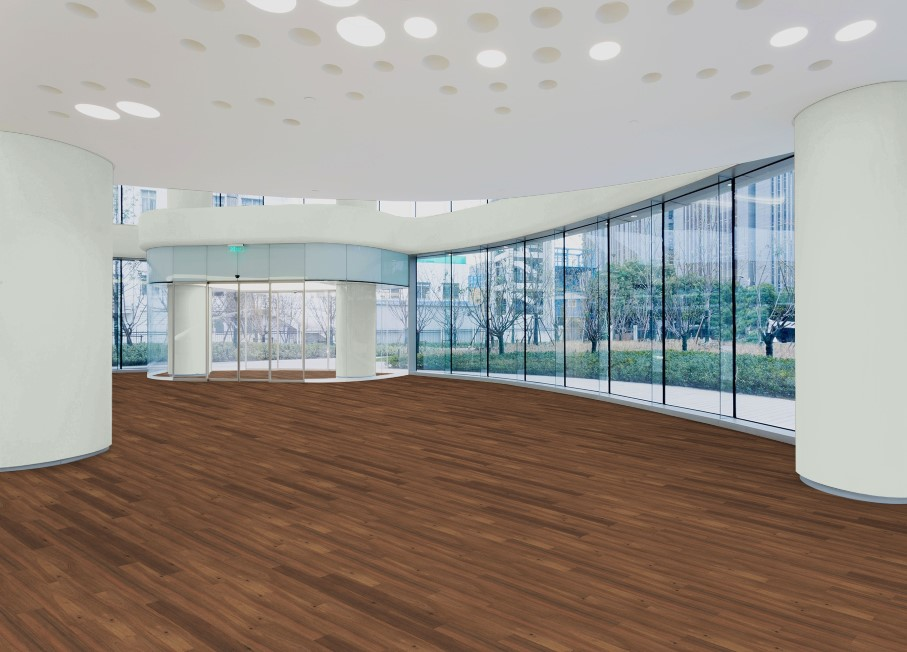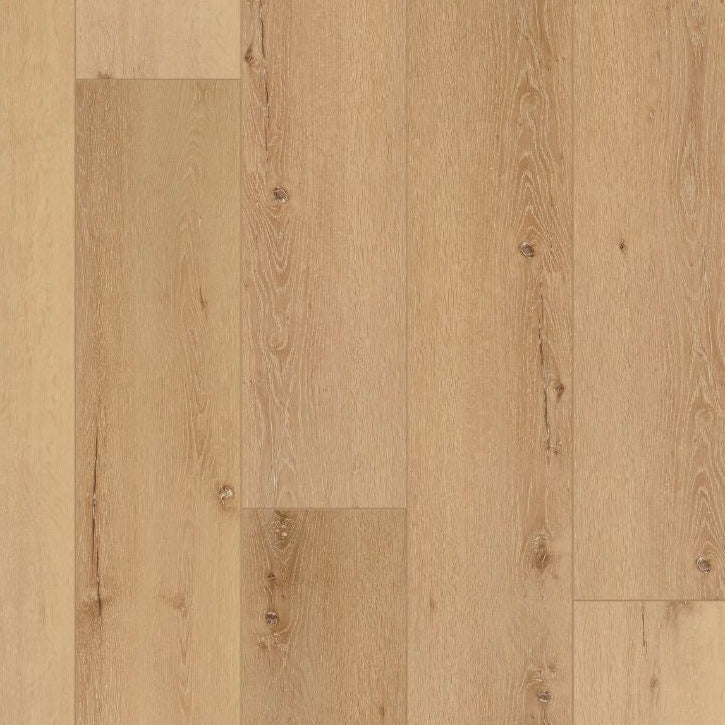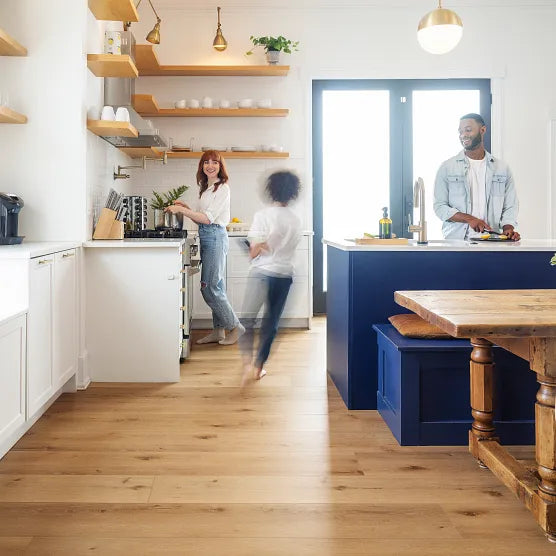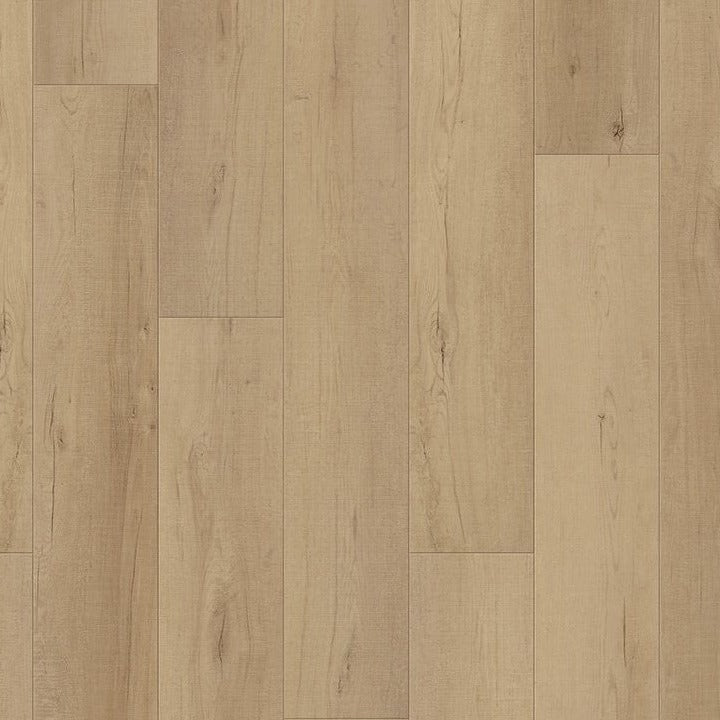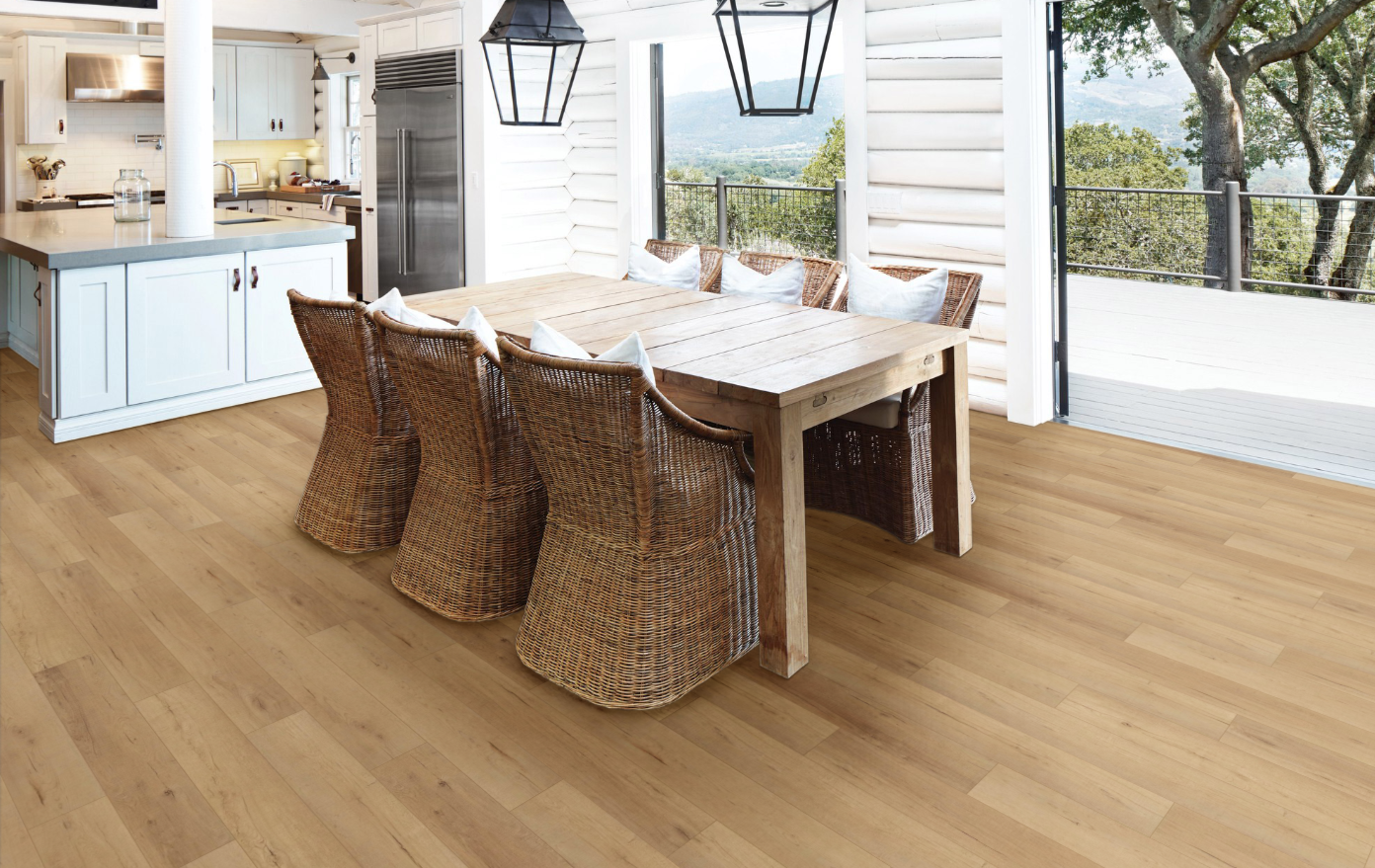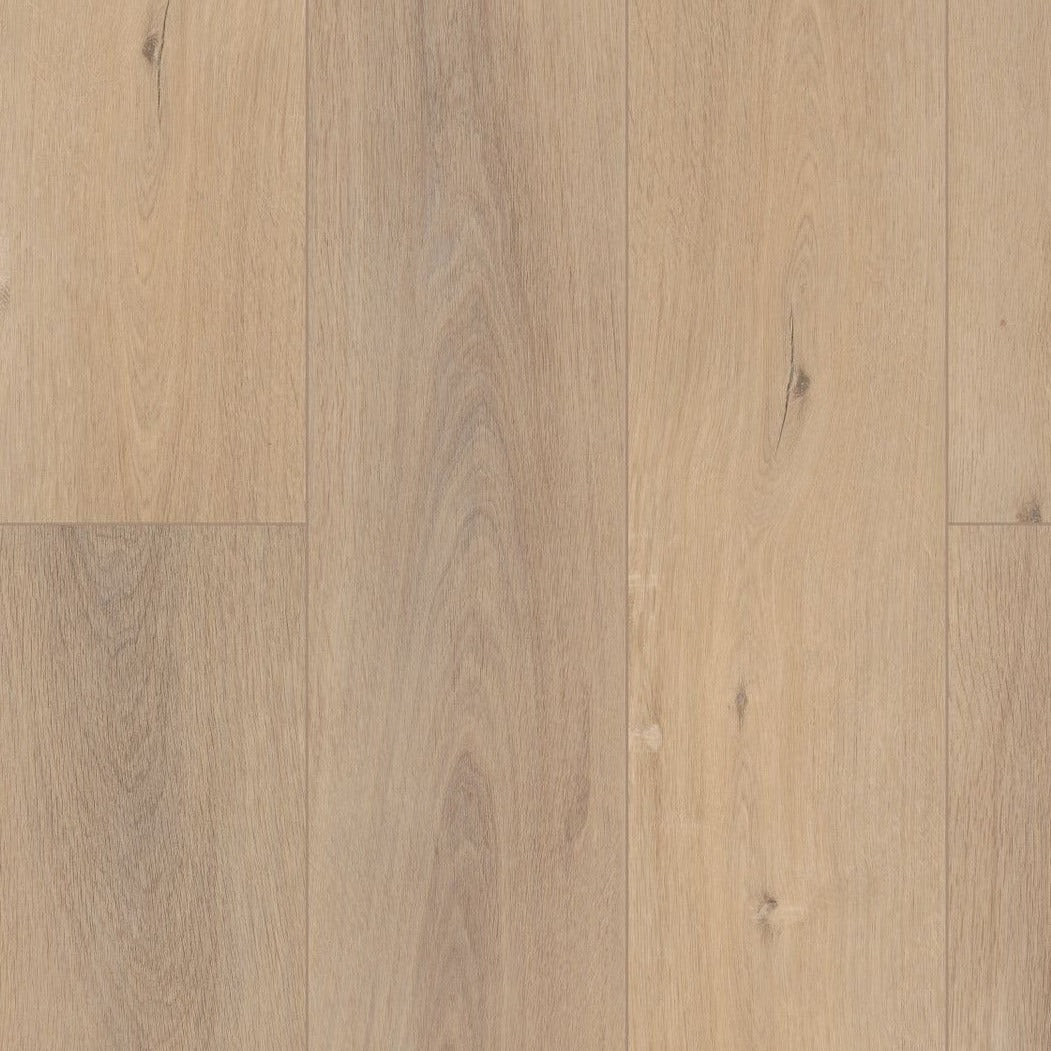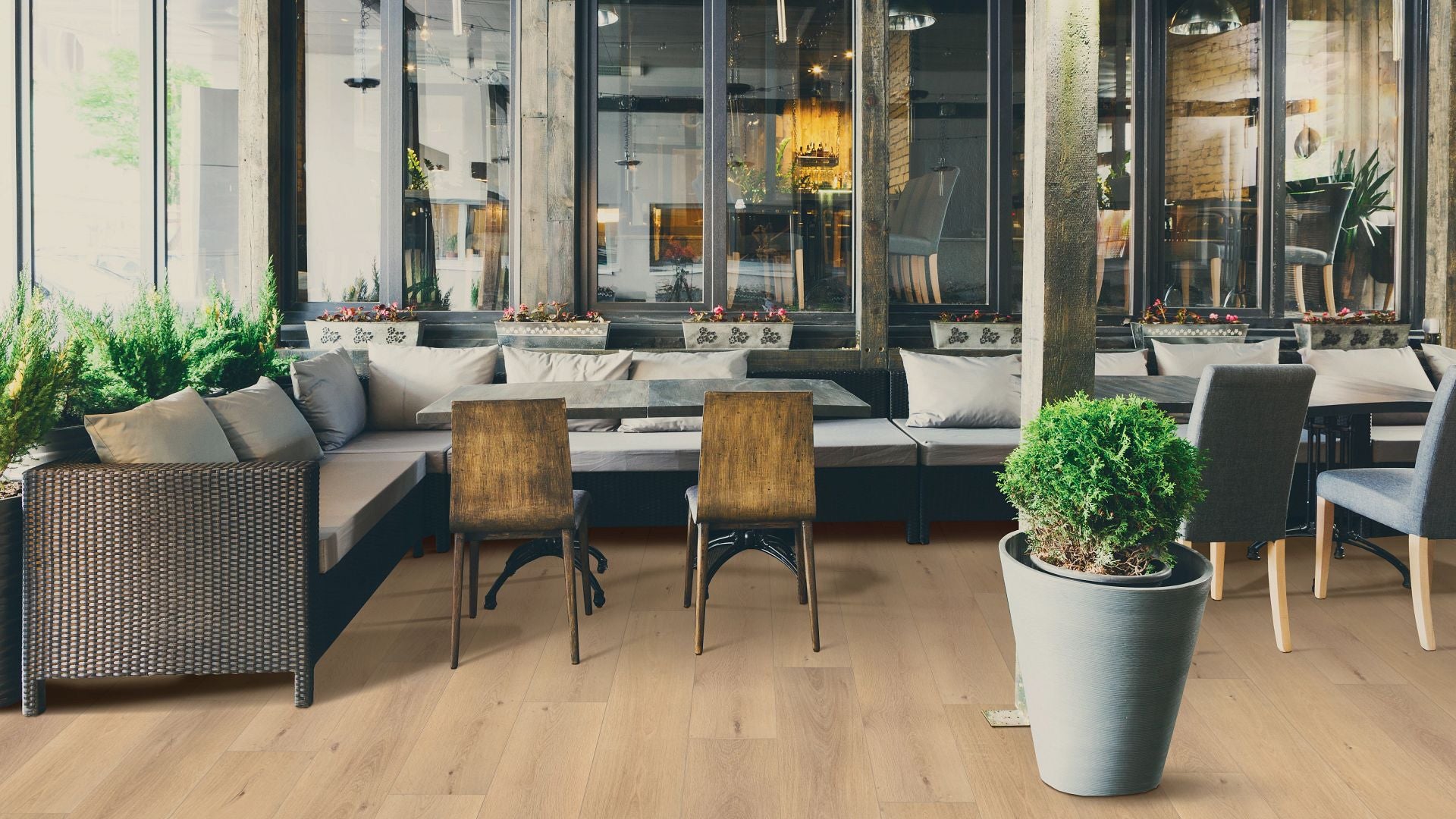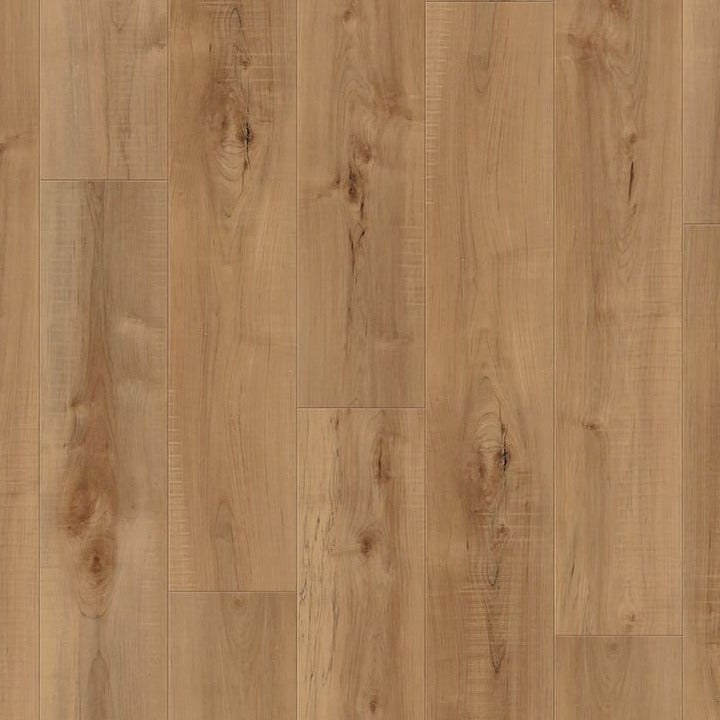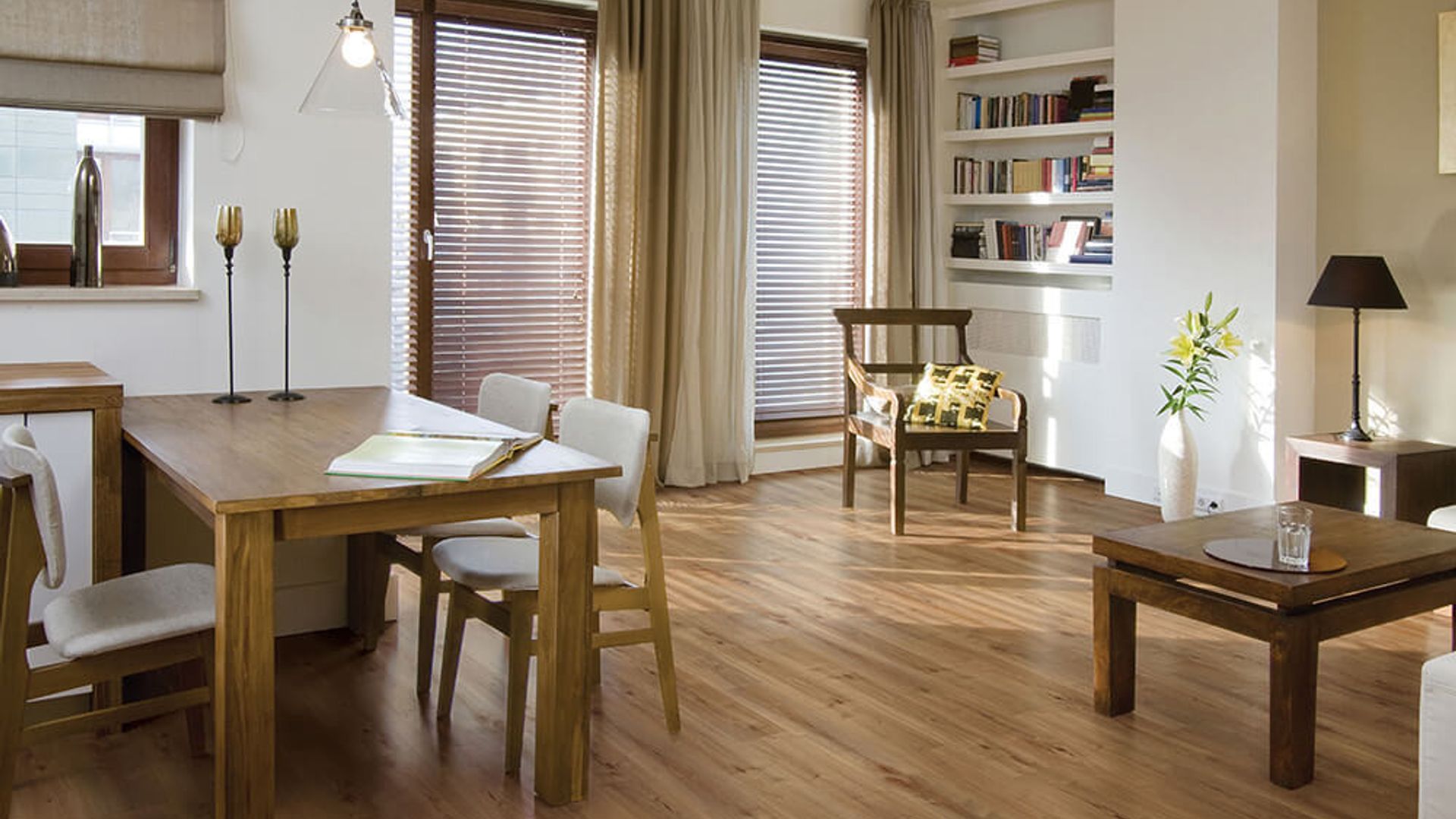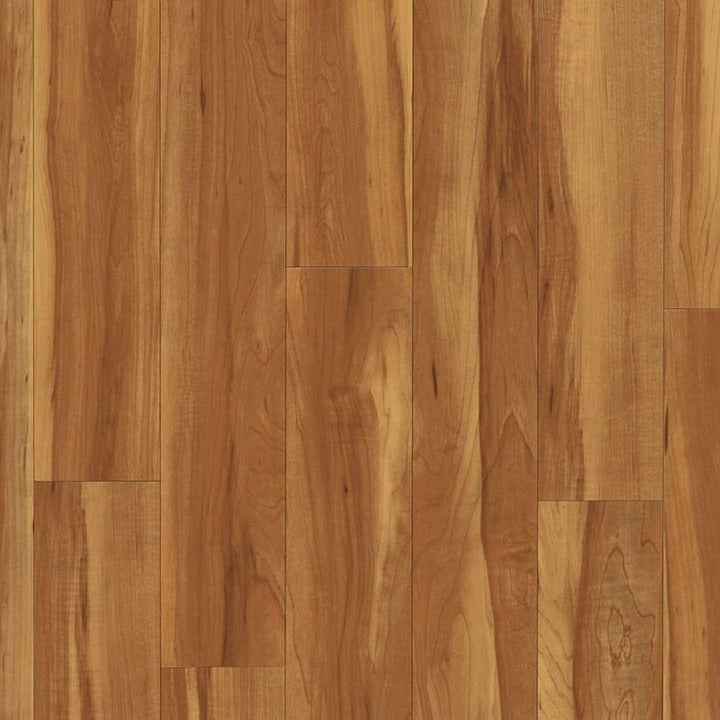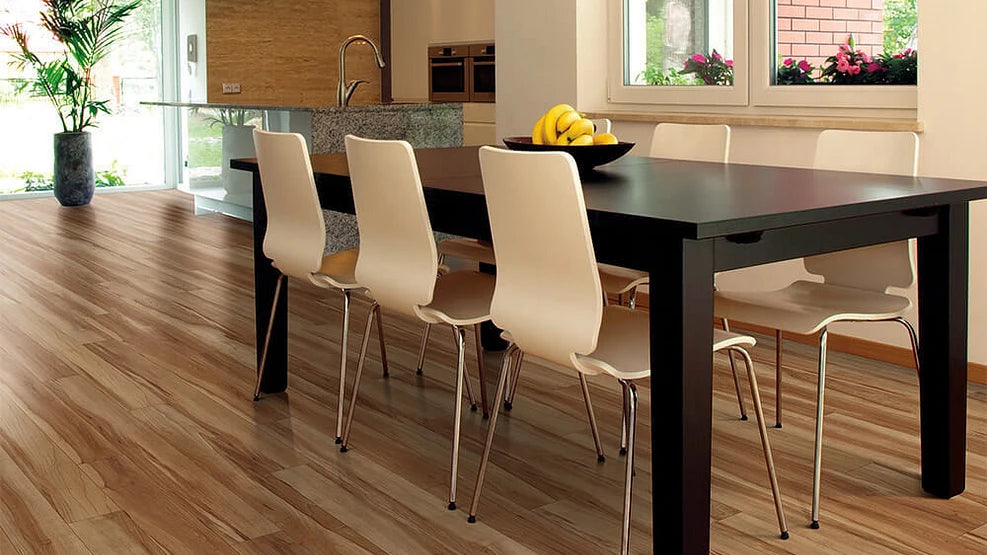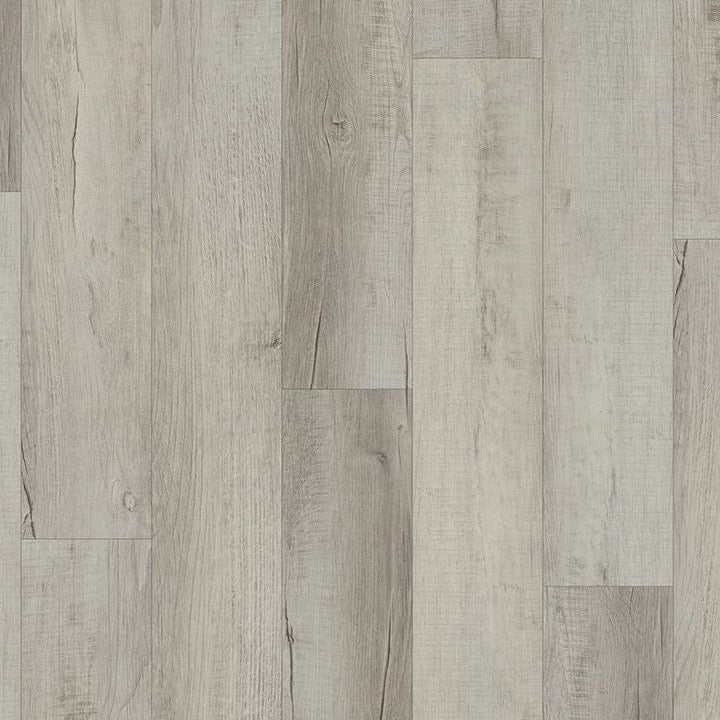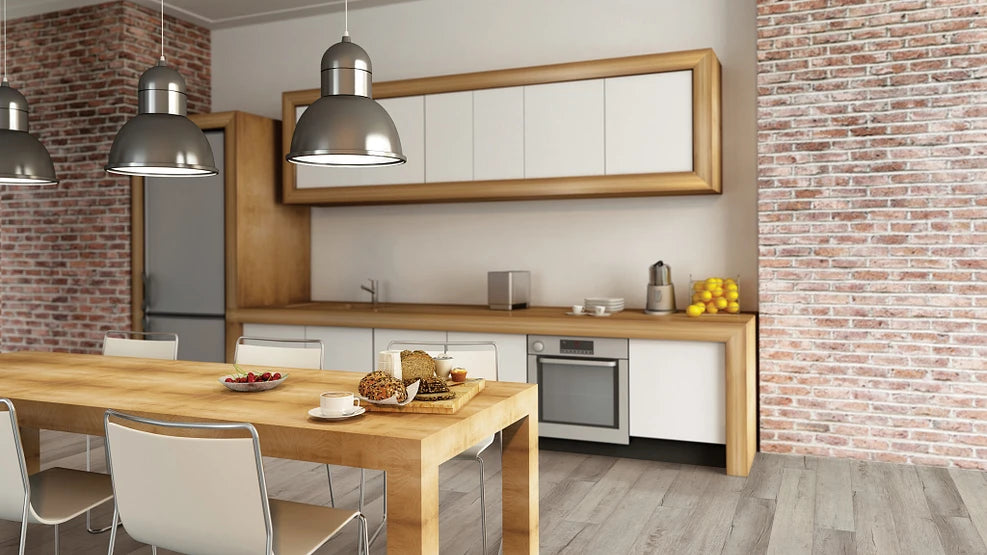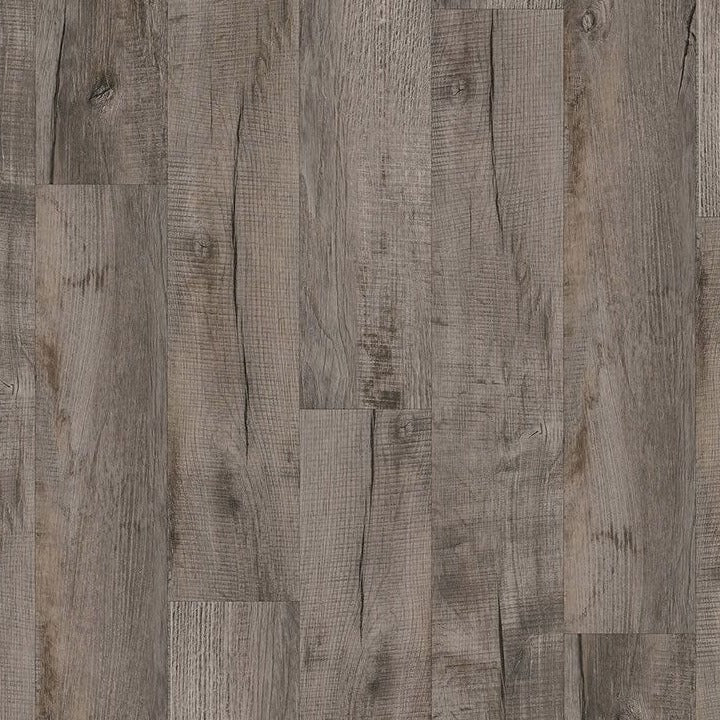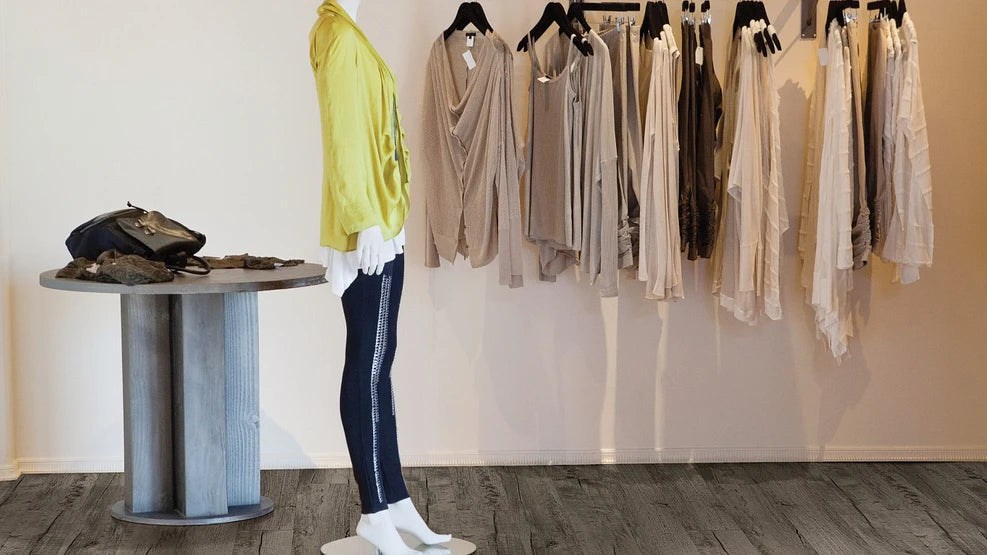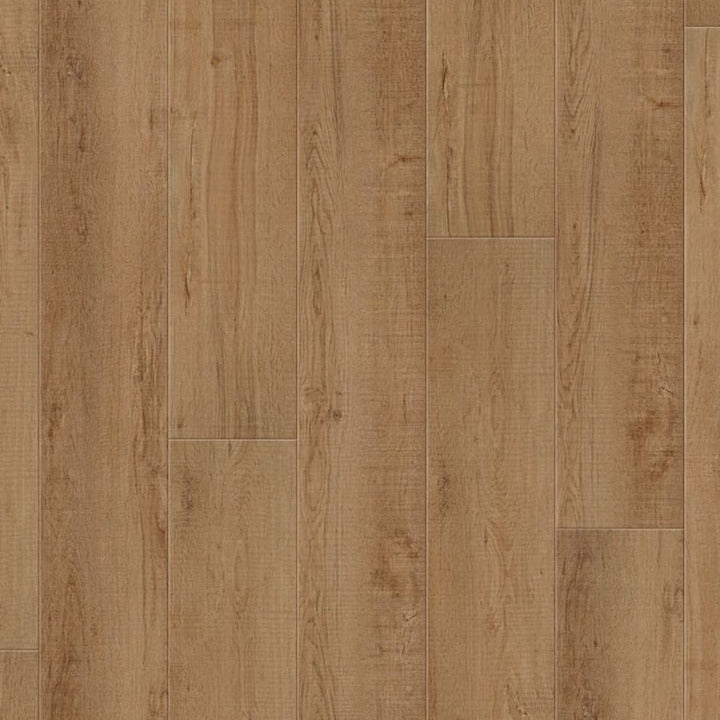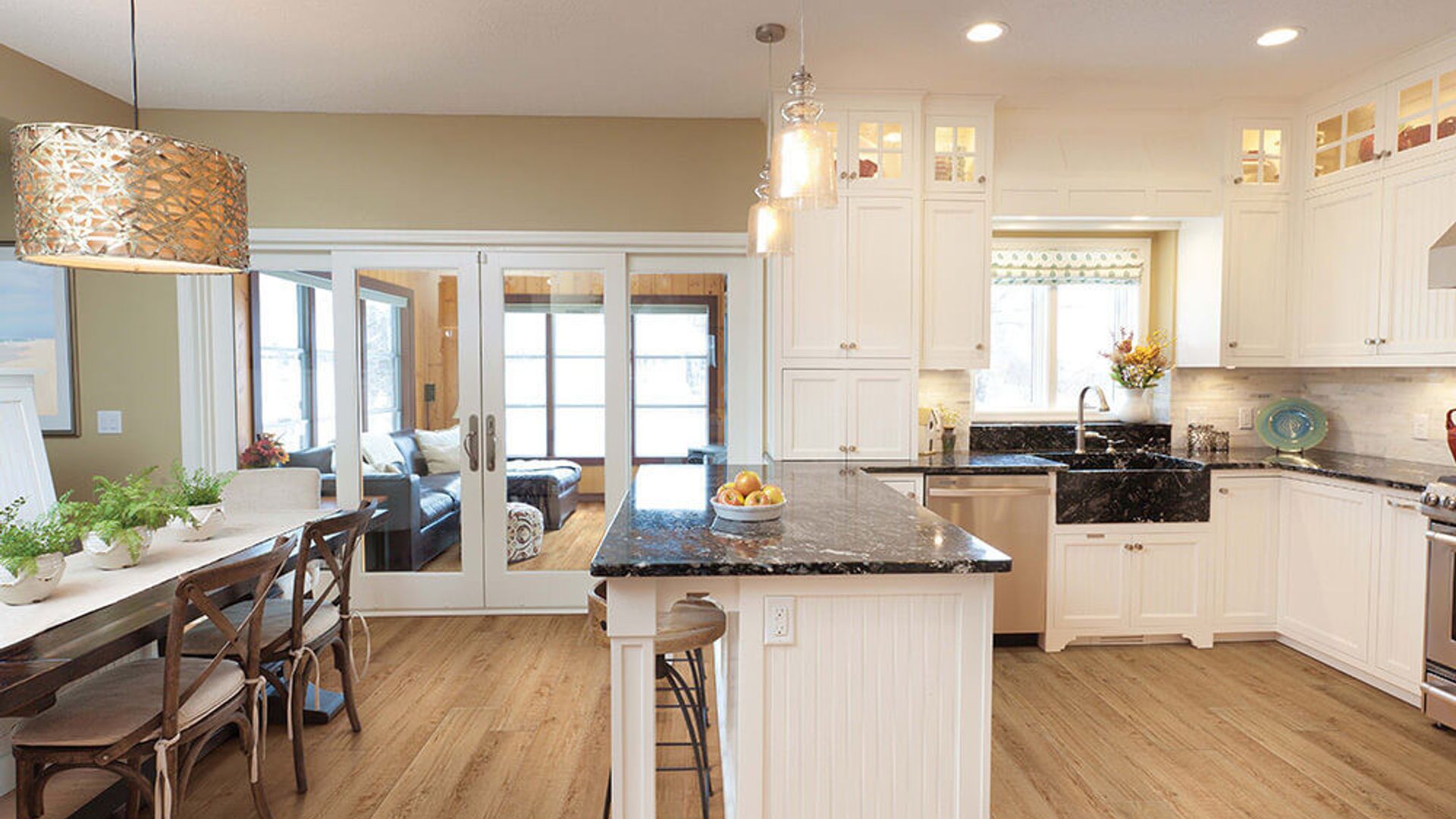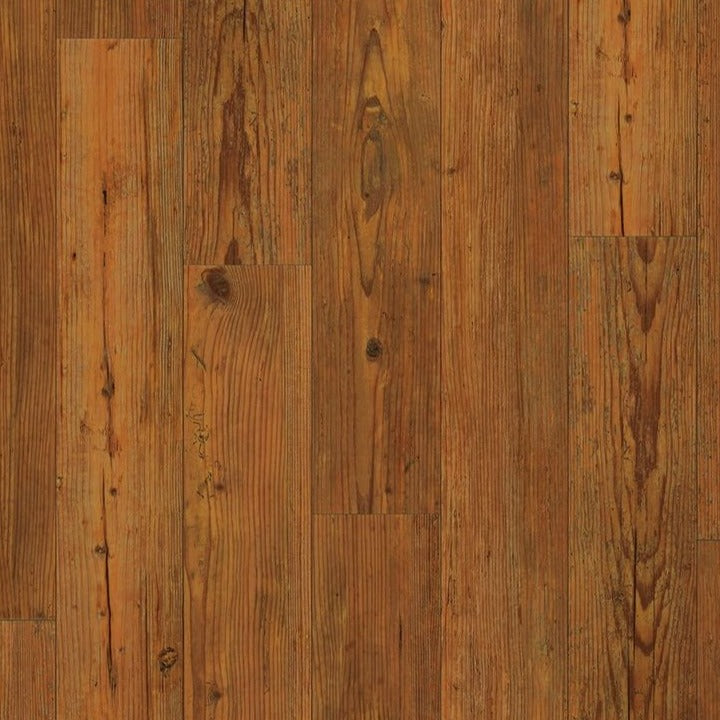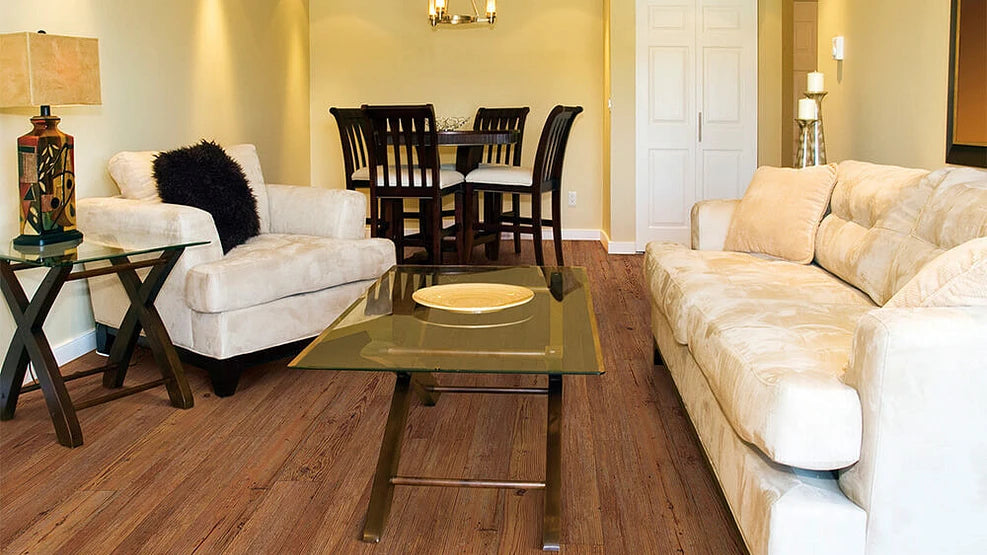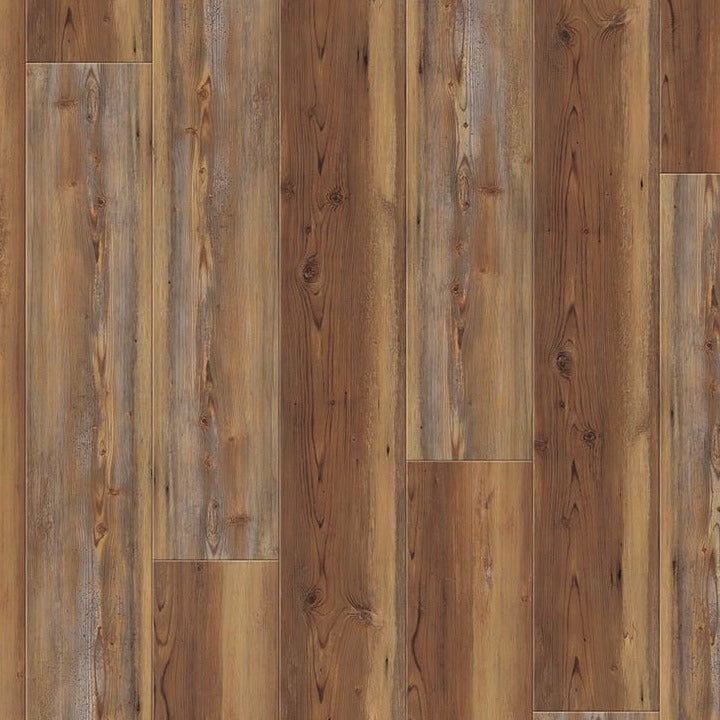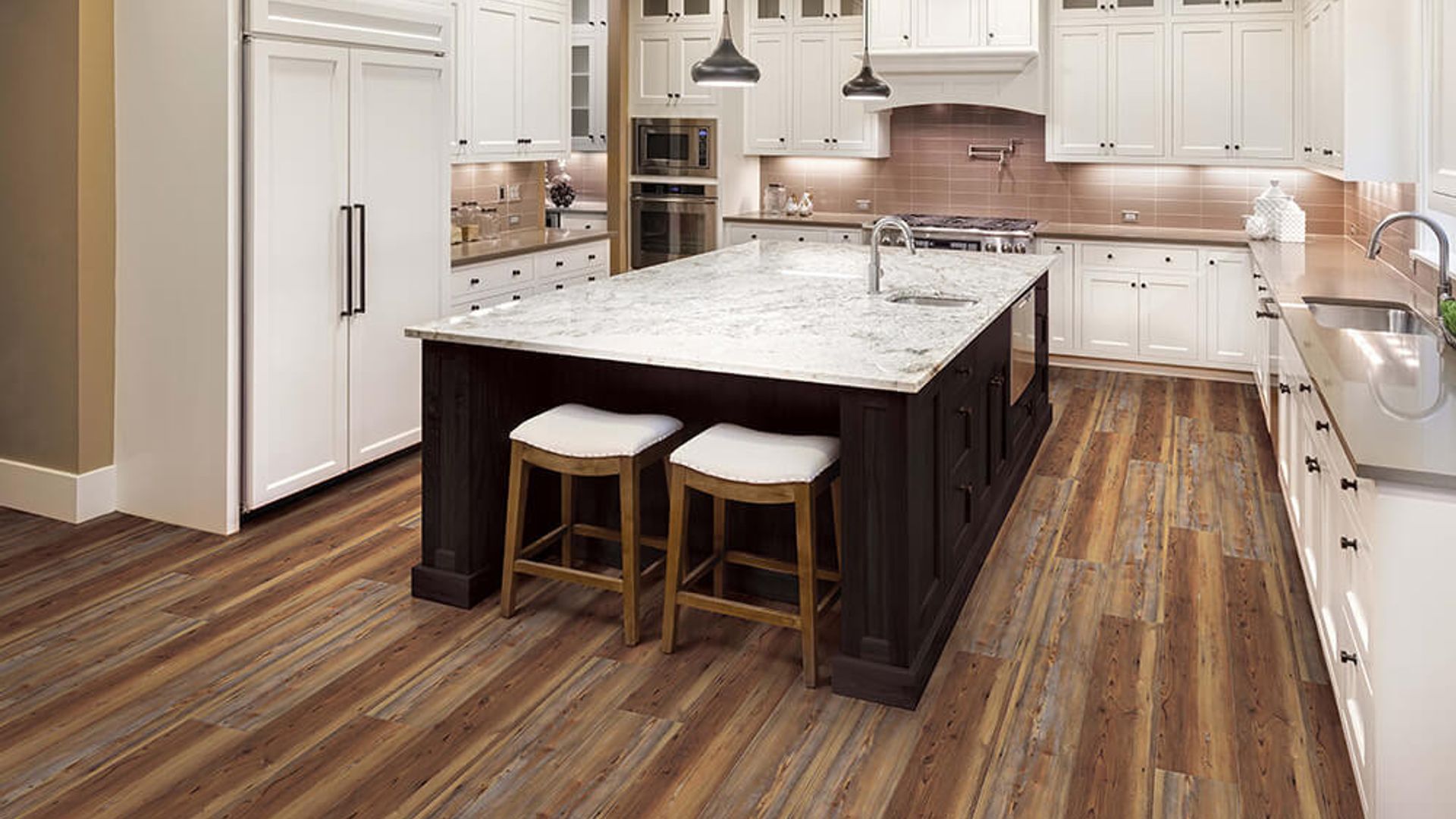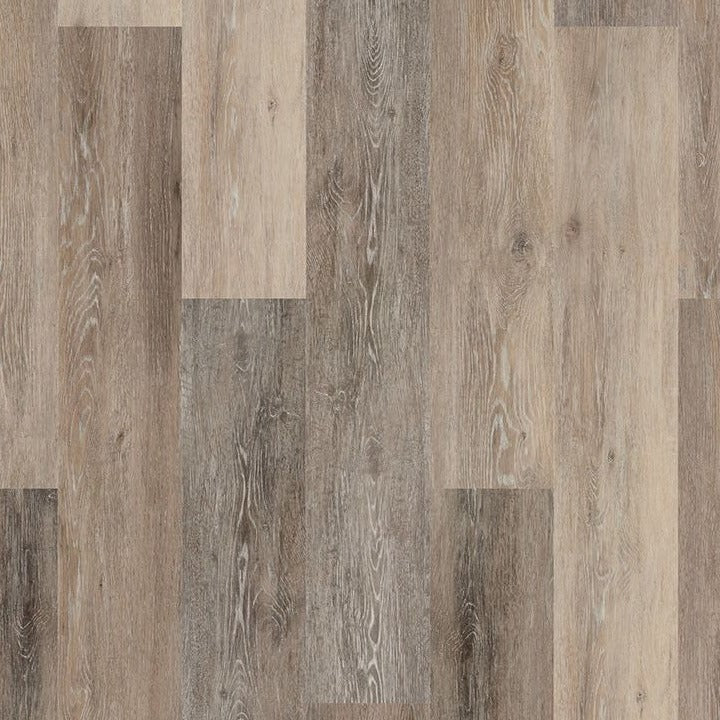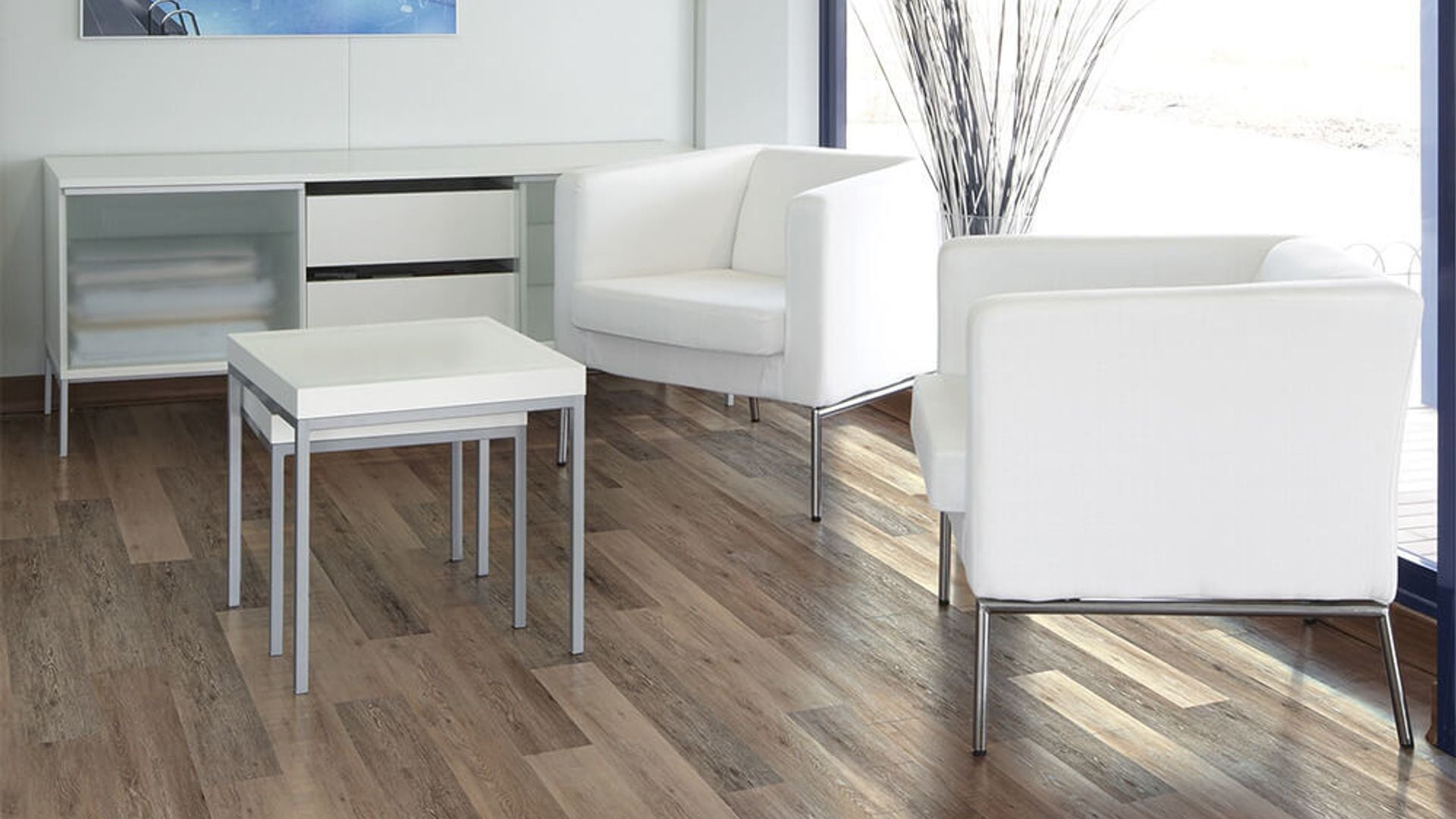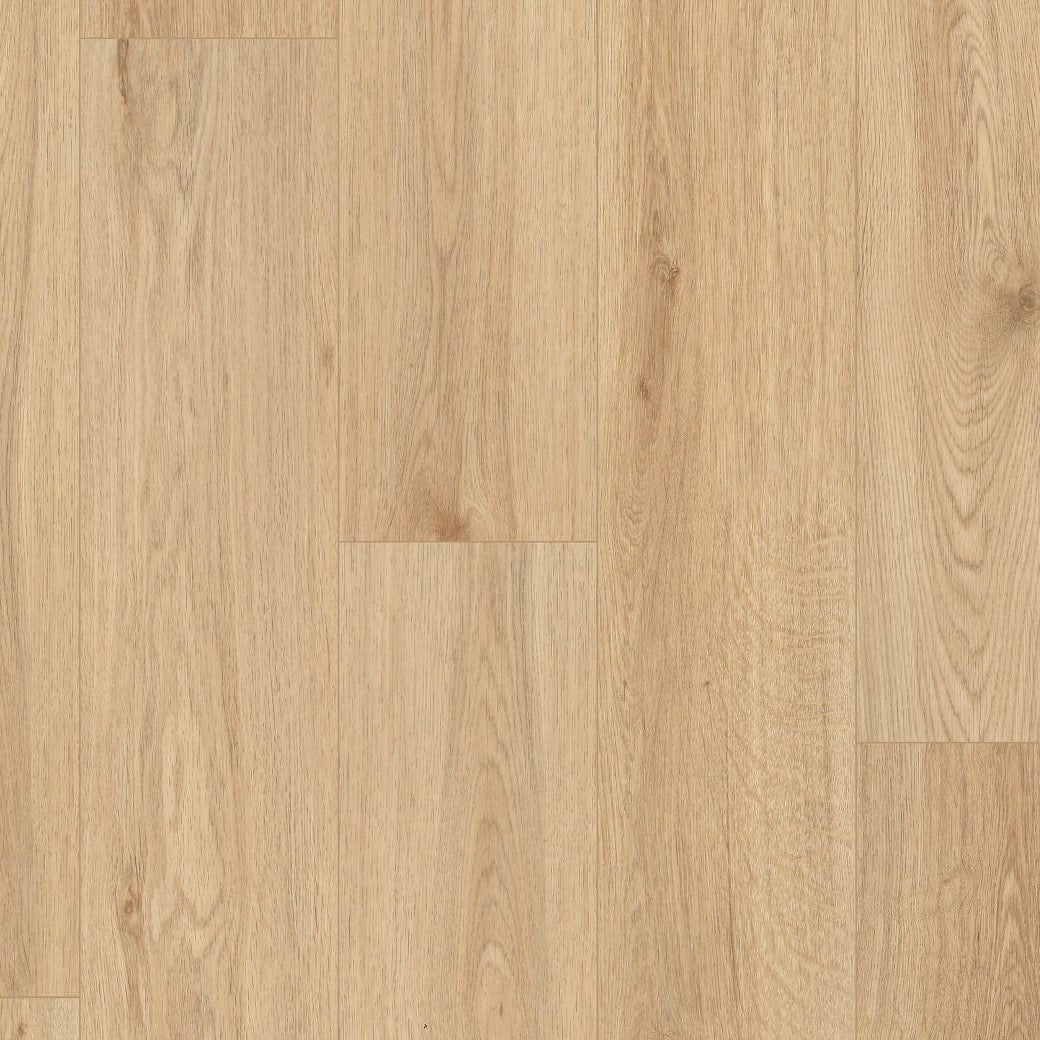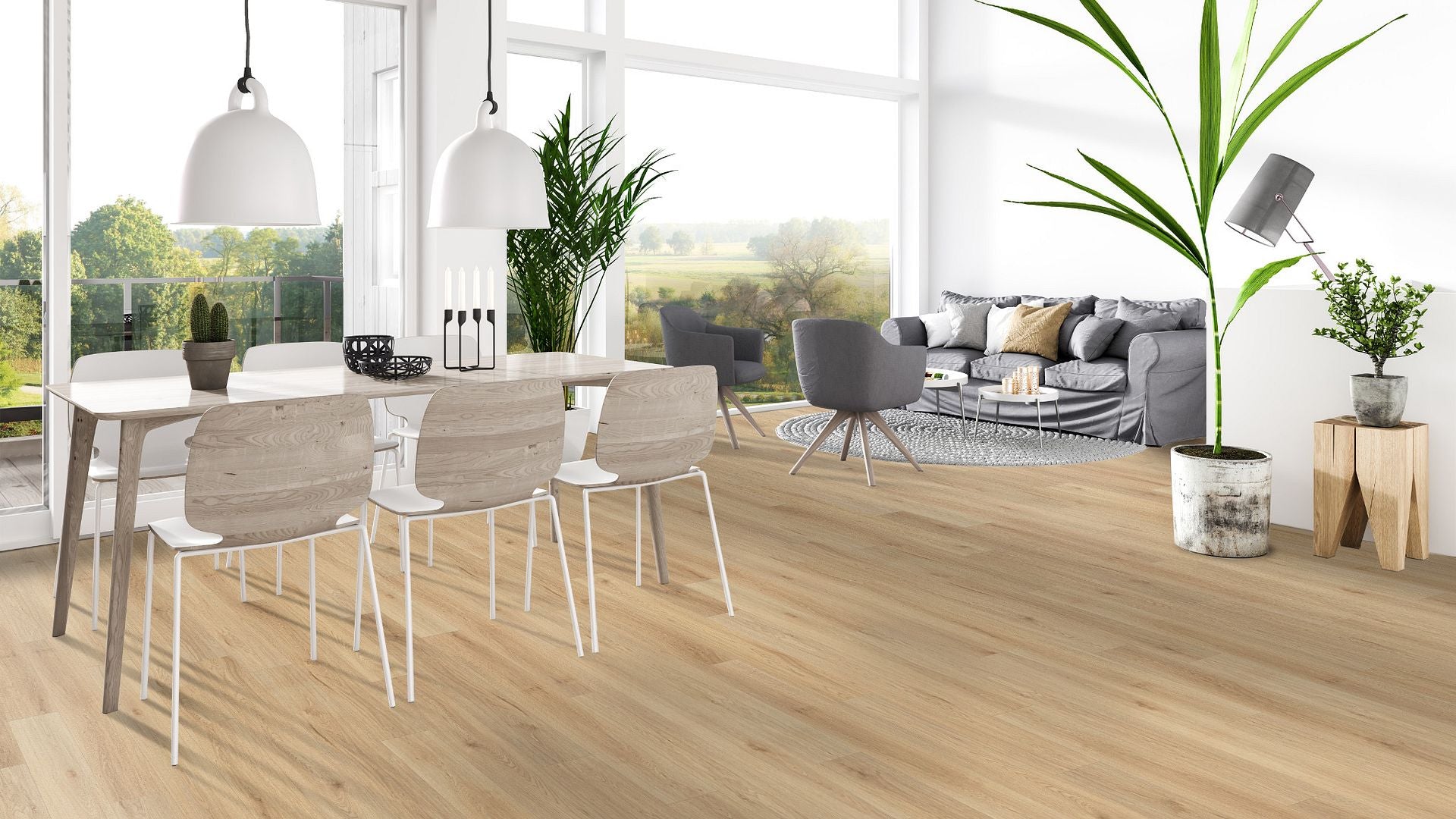Floor City Luxury Wood (LVP)
[commercial-vinyl-plank-flooring]
Before you consider the pros and cons of vinyl plank flooring, it’s important to understand the details of vinyl plank flooring and why it’s a popular flooring choice.
Luxury vinyl plank flooring, also known as LVP flooring, is a close relative of luxury vinyl tile; the main difference is that LVP flooring is shaped like planks, and LVT flooring is shaped like tiles. Pretty straightforward!
Vinyl flooring is known for being stylish, easy to install, and a cost-effective solution for a variety of projects in both home and office or commercial settings.
Vinyl plank flooring is made from PVC plastic and typically comes in long planks. Vinyl plank flooring is a popular choice for many homeowners because it closely resembles real wood floors but is a more durable, affordable option.
A standard vinyl plank floor includes three layers: a core or base layer, the layer with the pattern or design, and the wear layer, which is the transparent surface layer that we come in contact with. Each plays its own role in offering a durable, long-lasting flooring solution.
If you’re considering vinyl plank flooring for your home or office instead of traditional hardwood flooring, you may already know some of the benefits that come along with luxury vinyl flooring. Let’s recap the benefits here.
Pros of Vinyl Plank Flooring
Looking to install vinyl plank flooring in your home or office? We get it! Vinyl planks are popular because of the following benefits and perk
Durability
Vinyl plank flooring holds up against spills, messes, pets, moisture, and liquid. It’s not entirely waterproof, but it is water-resistant and can stand up to traffic in the main areas of the home. Vinyl flooring is often used in mudrooms, laundry rooms, and basements because of its water resistance and easy maintenance.
Affordability
Vinyl plank flooring allows homeowners to get the authentic look of wood for a fraction of what real hardwood costs. For those who are looking to cut costs on flooring but want to achieve the same premium look, vinyl plank flooring is a solid choice.
Resilience
Vinyl plank flooring is much more resilient than laminate and other flooring options, like carpet tile or peel-and-stick vinyl. Vinyl plank flooring can withstand the test of time (if properly cared for) and can remain the beautiful foundation of your home for up to 20 years.
Easy to Install
Installing vinyl plank flooring includes glueless floating or full-spread glue down and is a fairly simple process. If you are on the handier side, you can likely complete an installation project on your own or with an extra set of hands in a few days, depending on the scope.
Easy Repairs
Repairing a plank or section of the floor is much easier with vinyl planks than traditional wood, and it will not require refinishing the entire floor. We do recommend ordering 5-10% over for waste and future repairs. It’s better to be safe than sorry!
Cons of Vinyl Plank Flooring
Unfortunately, there are a few disadvantages of vinyl plank flooring in any setting. Here are the most common flaws of luxury vinyl planks that many homeowners encounter during installation and in the time after the flooring project is complete.
Comfort
It may look like real wood, stone, or tile, but vinyl planks certainly fall short on comfort to some people. When walking barefoot, many people notice that vinyl planks do not feel like authentic hardwood, marble, or stone. If that’s the feel you want in your home, you may want to look at other options.
Less Luxurious
There’s something about the raw, organic look of real hardwood that can’t be duplicated. Vinyl planks in your home or office will brighten up the space, but you won’t achieve the same luxurious, natural look as authentic hardwood.
While vinyl planks can closely resemble various types of wood, from oak to cherry, and many tones in between, it won’t be quite as cozy and inviting as the real thing.
Refinishing
Vinyl wood plank floors are not able to be refinished, which isn’t always an ideal choice for homeowners who may want to change the look or feel of their floors in the future. If you think you may want to switch things up in the future, vinyl planks may not be the best flooring choice for you.
Difficult to Remove
If glued down, LVP flooring can be very hard to remove if you ever want to replace it. There are easy locking / interlocking options that make the process easier, but if you are installing vinyl plank in a commercial space, we recommend selecting glue down vinyl plank flooring for this exact reason.
Wear and Tear
Some vinyl plank floors have a very thin wear layer and can be scratched, scuffed, dented, or scraped. From sharp objects damaging the vinyl planks or dragging heavy furniture across the floors, wear and tear adds up over time and can become significantly noticeable with luxury vinyl.
If you want to avoid noticeable wear and tear on your floors, we recommend selecting luxury vinyl flooring with a 20 mil wear layer or higher. Light commercial starts at 12 mil and goes up to 30 mil for commercial grade/ industrial strength luxury vinyl.
Lack of UV Protection
Some top coatings of LVT flooring are not UV protected, which can cause the design or pattern to fade or have discoloration over time. This is particularly accurate if your vinyl floors will be regularly exposed to bright sunlight. Consult with the manufacturer to see if the material is resistant to ultraviolet rays.
Vinyl Flooring at Floor City
Whether or not you’ve ruled out vinyl plank flooring for your home or office project, know that Floor City is here to provide you with the high-quality materials to make any flooring project stand out.
We carry the best names in flooring, including Armstrong, Mohawk, Flexco, and many more. Regardless of the choice you make, you can rest assured that we’ll take care of you at Floor City. Learn more about our vinyl flooring options here.


